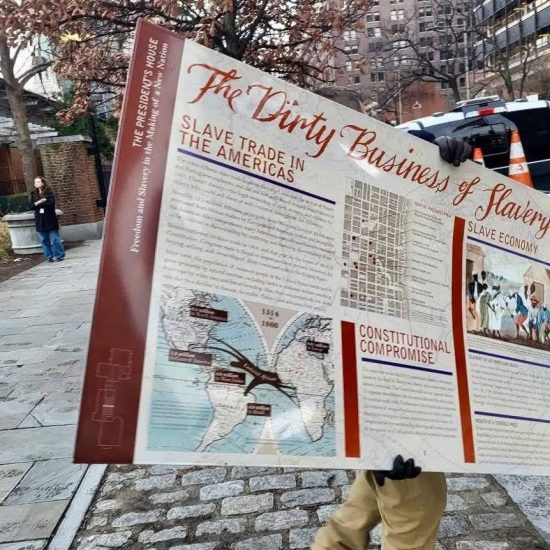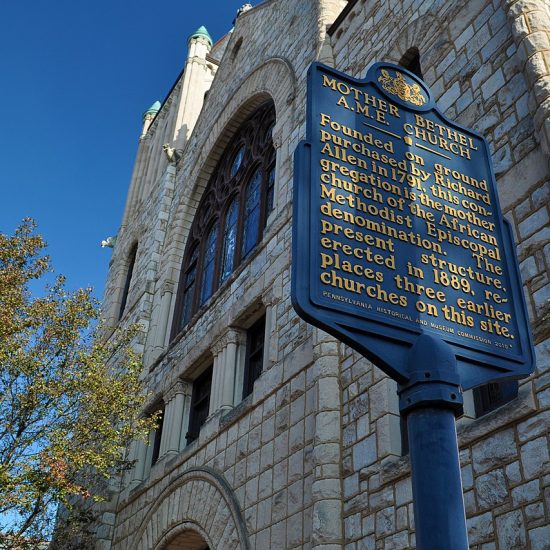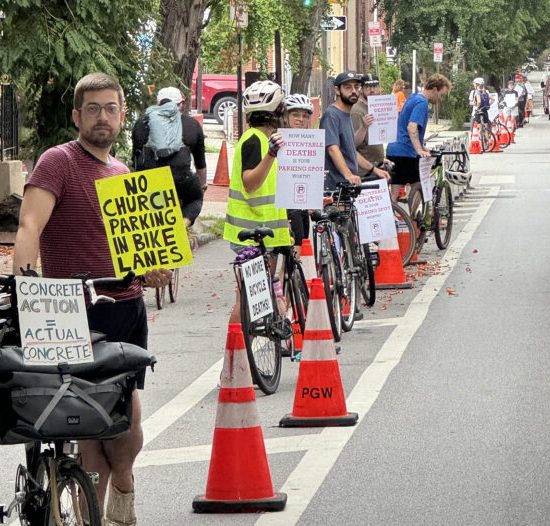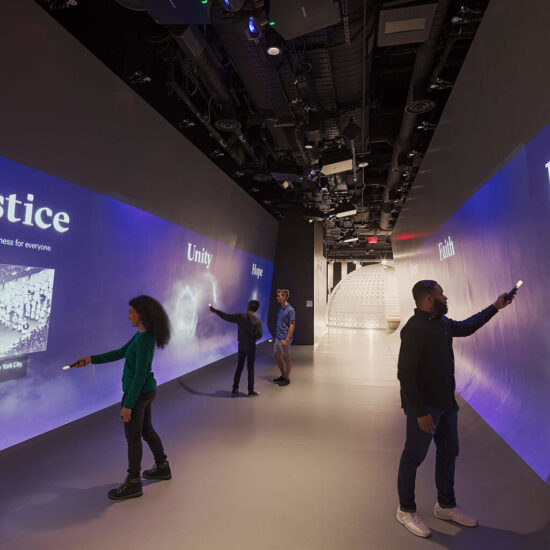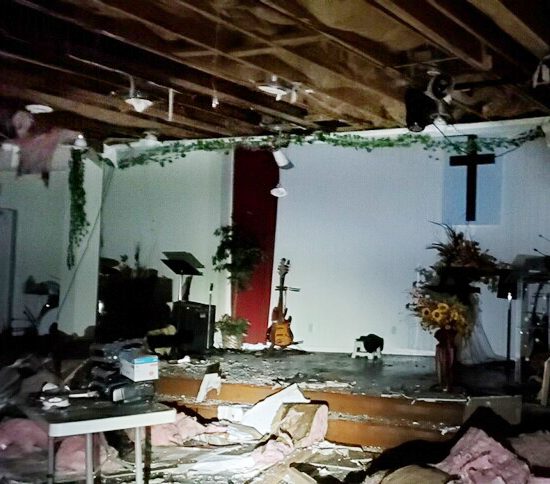PHILADELPHIA — Initiatives such at the New Baptist Covenant II help lower racial barriers, but there is “still a lot of work to do,” said a south Philadelphia pastor who helped organize a satellite viewing of the three-day event.
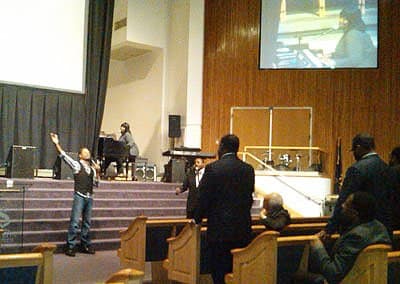
A worship team leads participants in singing after the Friday morning simulcast of the New Baptist Covenant.
|
“I’ve said to many folk that one of the biggest hindrances to a witness to Christ is racism,” said Steven Avinger, pastor of Greater Saint Matthew Baptist Church in Philadelphia. “We can’t say we love the Lord and hate our brother. At some point we have to cross those boundaries in the cause of Jesus Christ.”
Racial injustice was a key focus of the New Baptist Covenant II, which drew diverse Baptists who share concern for the poor and marginalized to Atlanta Nov. 17-19. Sessions of the three-day meeting were simulcast to viewing sites across the country and focused on a mandate in the 4th chapter of the Gospel of Luke to “bring good news to the poor, proclaim release to the captives and recovery of sight to the blind, to let the oppressed go free, and to proclaim the year of the Lord’s favor.”
In Philadelphia the satellite feed was shown on three large screens in the 3,000-seat sanctuary of Sharon Baptist Church on the city’s west side. The church’s pastor, Bishop Keith E. Reed Sr., hosted the event, which was combined with the annual meeting of the Pennsylvania Eastern Keystone Baptist Association.
“Since we were having our annual session at the same time, we were asked to include [the New Baptist Covenant satellite viewing], which we were glad to do,” said Avinger, who is moderator of the association. Pennsylvania-Eastern Keystone is affiliated with both the National Baptist Convention and the Progressive National Baptist Convention.
Avinger, who also serves as a vice president of the Pennsylvania Baptist State Convention, just returned from a trip to Israel where he said divisions between Jews and Muslims heightened his sense of the racial divide in the United States.
“One of our guides in Israel told us that they need us [Christians] there because we have the light,” he said. “But when you look at racial divisions in our country, which is primarily made up of Christians, It seems that we hide that light under a bushel.”
Rho Reed, director of public relations for the 77-year-old Sharon Baptist Church, said the congregation values the same Luke 4 mandate espoused by the New Baptist Covenant – potentially making an impact in a city where one in four people live in poverty and unemployment, at 10.9 percent, is higher than the national average.
Though the satellite viewing itself drew a small crowd, about 6,000 people typically worship at Sharon in two Sunday morning services. Reed, who is the pastor’s sister, said the church moved to its current site from an inner city location in 1999. Two years later the original church burned, leaving only charred bricks and the cross which had sat atop the roof.
“In its place we put a community center and included the original church’s cornerstone and cross, and some of the old bricks,” she said.
In addition to operating the community center, the church offers a wide array of spiritual and physical ministries, including a development center, medical services, a credit union, a day care center and a café which offers nutritious meals at a modest cost before and after Sunday services. A school for children in kindergarten through sixth grade will soon expand to include 7th though 12 grades, and last fall an additional school opened for boys, beginning in the first grade. Eventually it too will extend through 12th grade.
Even the 6,000 in Sunday services at the church, which is affiliated with both the National Baptist Convention and the Southern Baptist Convention, is only a beginning, said Reed. The back wall of the sanctuary is a “false one,” she said, which can be removed to add another 800 people when it becomes necessary.
“We’re ready to take that wall down,” she said.
Robert Dilday (rdilday@religiousherald.org) is managing editor of the Religious Herald.

